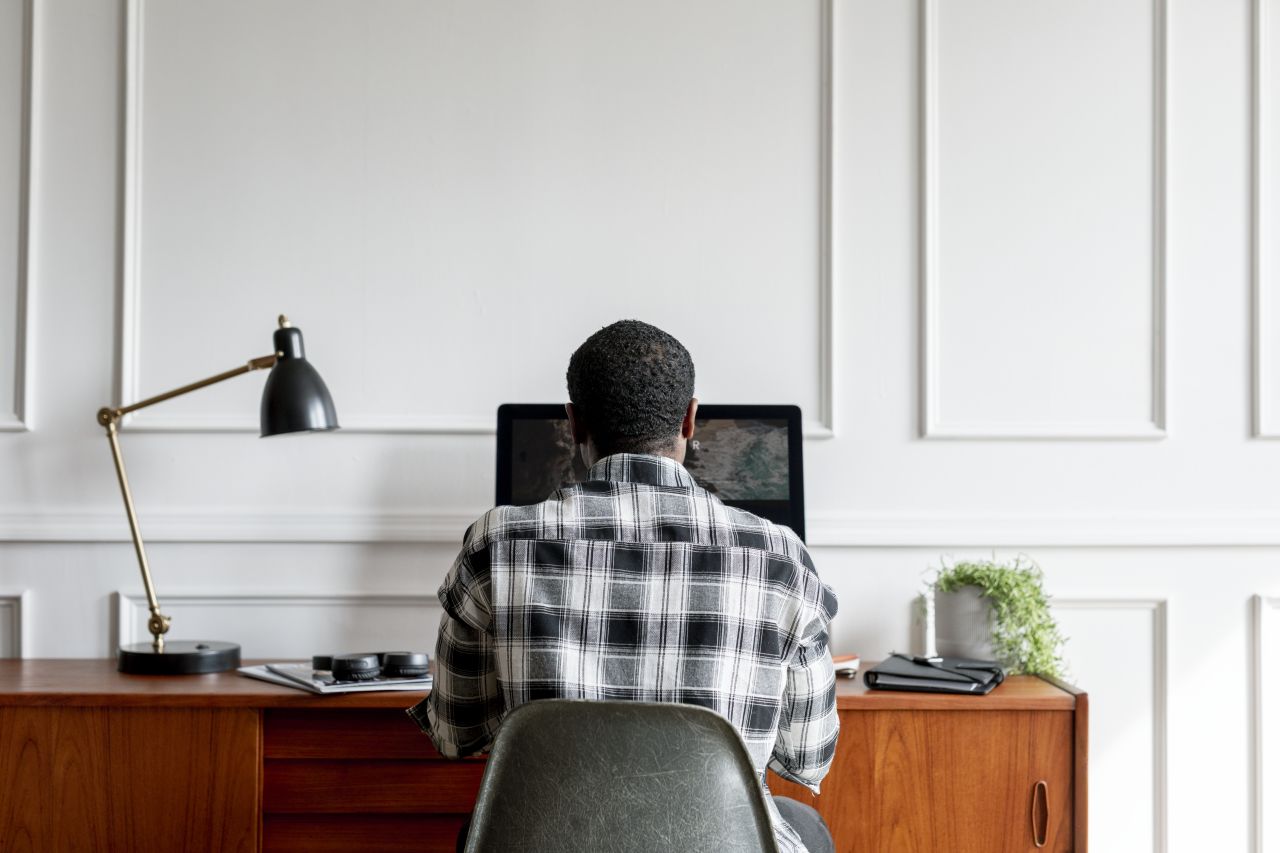How to maintain a professional image when you work from home
Working from home has its benefits. You can squeeze work around your family. You can choose your hours. You can stay in your pyjamas all day long if that's what you prefer. Most of all, you can save money by not commuting or renting an office.

Image licensed via Adobe Stock
But frustratingly, working from home can still mean that people won't take you seriously. After all, how do you present yourself as a professional, if you're working from your dining room table? How do you project an air of professionalism without allowing home life to risk damaging your reputation?
It seems silly to have to tackle this common challenge – and it's indeed becoming less of an issue as we move with the times. But if you're worried about your image, here are just a few handy tips to ensure you're taken seriously.
Get a virtual business address
First things first, you don't want to use your home address as your business address because this could immediately damage your reputation as well as your chance of earning a decent day rate. With the ongoing stigma about working from home, you want to present yourself as professionally as possible, so get a virtual business address with post-forwarding.
Business parks, co-working spaces and independent companies such as Mail Boxes Etc are great places to start looking. Royal Mail offers a PO Box option as well, but many argue that having 'PO Box' in your business address gives the game away.
Get a virtual PA
Someone answering your phone on behalf of your business, acting as a receptionist, can be a godsend when you work from home. Especially during those times when home life is becoming too noisy, you need to get your head down, or you're out at meetings.
You could check out Answer.co.uk, All Day PA or Moneypenny for some affordable and flexible solutions. Another one to consider – although slightly more expensive – is TimeEtc where you can hire virtual assistants from £29 per hour.
When looking for a virtual business address, see if they'll provide a telephone answering service, because they often do.
Rent meeting space
When your office is your dining table, what on earth do you do when a client wants to 'meet'? You can certainly suggest a meeting place, such as a coffee shop or restaurant. But some clients will want to 'see where you work'. In which case, hire some meeting space. Co-working spaces, business parks, even council-run operations can offer this service, so find somewhere you can use regularly.
Create an office setting
Now that you've got the bare necessities in place, it's time to designate an area of your home to your business. Because let's face it, the dining room table is meant for something else.
If you've got space, use one room as your home office. Keep everything business-related in this area and make it somewhere you enjoy working from.
Present your business accordingly
Your branding should scream professionalism. That means no 'comic sans' anywhere. And certainly no homemade logos. Hire a professional graphic designer to create a brand identity for your business. Then get all the basics: business cards, letterheads and compliment slips, so all correspondence with clients is professional.
Get the best website you can afford
With so many affordable options to get online these days – without the need to be a web developer – there is simply no excuse not to have a professional website. Behance offers Prosite where you can build your site at an affordable cost. And there are loads of other affordable options, such as Squarespace.
Have confidence in your business
While some freelancers will want to present themselves as a bigger business – and you can read our tips on how to make your small business appear larger – many will want to be honest.
Because being a one-person operation doesn't necessarily mean you're unprofessional. You have to learn how to sell yourself and demand respect. Read our tips on how to sell yourself when your business is small. It's merely a case of being aware of your skills and expertise and presenting yourself as a 'consultant' and expert in your field.
Hook up with other people
Collaboration is the buzz word of the decade. And more and more small firms are starting to realise the benefits of hooking up with other people in the same situation. If you're a designer, find a web developer in a similar boat and try and win business together as a two-person operation. Copywriters and PR professionals will suit tying up with marketing peeps. You'll be able to start talking about your 'team' and how you can provide a wider range of services. Something that will help to expand your portfolio and draw new business.
Find friends to retain those social skills
If collaboration isn't quite for you, you can still make friends with other business owners. Try to find a work-from-home buddy you can chat with over email or Skype. You'll always need to brainstorm, share tips or enjoy a natter – not only to keep yourself sane but to keep on top of your social skills. If you work by yourself, never leave the house and never talk to anyone, you'll lose confidence and the ability to talk to people easily. And you don't want to be stuttering when a potential client gets in touch.
Don't work from home
My final tip? Find an office. There are loads of opportunities out there to have a separate workspace – and it doesn't necessarily have to be expensive. Co-working spaces, business centres, local hubs – more are popping up in towns and cities to feed the small business movement. If you can't afford space on your own, team up with other freelancers to rent a space together. Because nothing beats having your own office.




 by Tüpokompanii](https://www.creativeboom.com/upload/articles/58/58684538770fb5b428dc1882f7a732f153500153_732.jpg)


 using <a href="https://www.ohnotype.co/fonts/obviously" target="_blank">Obviously</a> by Oh No Type Co., Art Director, Brand & Creative—Spotify](https://www.creativeboom.com/upload/articles/6e/6ed31eddc26fa563f213fc76d6993dab9231ffe4_732.jpg)
















